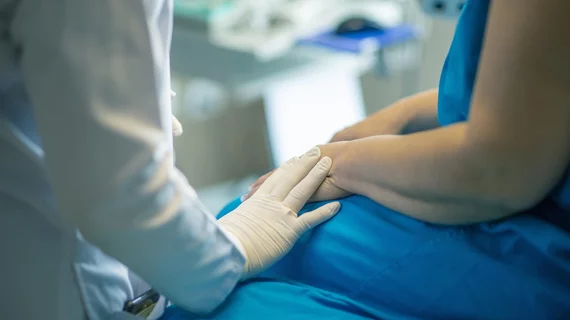Internal infections serious enough to require hospitalization raise 30-day CVD risk: 2-country, multicohort study
Patients hospitalized for severe infectious diseases are at heightened risk of major cardiovascular-disease events within a month of admission date, according to a study published online March 27 in Circulation [1].
The researchers, from the University of Helsinki in Finland and University College London in the U.K., further found the cardiovascular risk was not limited to any particular type of infection. Sepsis, acute respiratory and urinary tract infections, bacteremia and pneumonia all showed up.
The associated CVD risk declined over time but remained marginally elevated for months after initial hospitalization.
Pyry Sipilä, MD, PhD, and colleagues arrived at the findings upon analyzing data from more than 331,000 individuals in the UK Biobank who had no cardiovascular disease at baseline (2006–2010).
Meanwhile the team analyzed data from a replication cohort assembled from three prospective studies involving more than 271,000 participants in Finland whose healthy baseline was established between 1986 and 2005.
Focusing on several post-hospitalization CV events—myocardial infarction, cardiac death, fatal or nonfatal stroke—the investigators computed adjusted hazard ratios and confidence intervals for infectious diseases as short- and long-term risk factors.
They found that, after controlling for traditional cardiovascular risk factors, the population-attributable fraction for severe infections and major cardiovascular events was 4.4% in the U.K. Biobank and 6.1% in the Finnish replication cohort.
Other key findings:
- The absolute cardiovascular risk associated with severe infections was highest among people with preexisting elevated risk for cardiovascular disease.
- In the biobank cohort, the association of infection-caused hospitalization with major cardiovascular events was strongest during the first month after infection (hazard radio 7.87) but remained elevated during the entire follow-up (hazard ratio 1.47). These findings were similar in the replication cohort.
- During 3.9 million person-years at risk after baseline, there were 11,649 major cardiovascular events (incidence, 3.0 per 1000 person-years). Of these, around 6,500 were myocardial infarctions or coronary heart disease deaths, and around 5,000 were strokes.
In their discussion, Sipilä and co-authors recommend the use of existing risk estimators such as those for 10-year atherosclerotic cardiovascular disease risk set forth by the American College of Cardiology and American Heart Association.
Also, while special attention may be needed for infected patients with preexisting elevated CVD risk, treatment decisions across the board “must account for the risk of major intracranial and gastrointestinal bleeding, which may also be increased in the acute phase of an infection,” Sipilä et al. point out. “Avoidance of potential triggers of cardiac and cerebrovascular events during the acute phase, such as excessive use of alcohol, overeating, lack of sleep, work stress and long working hours, may be beneficial and is without harm.”
The study is available in full for free.

